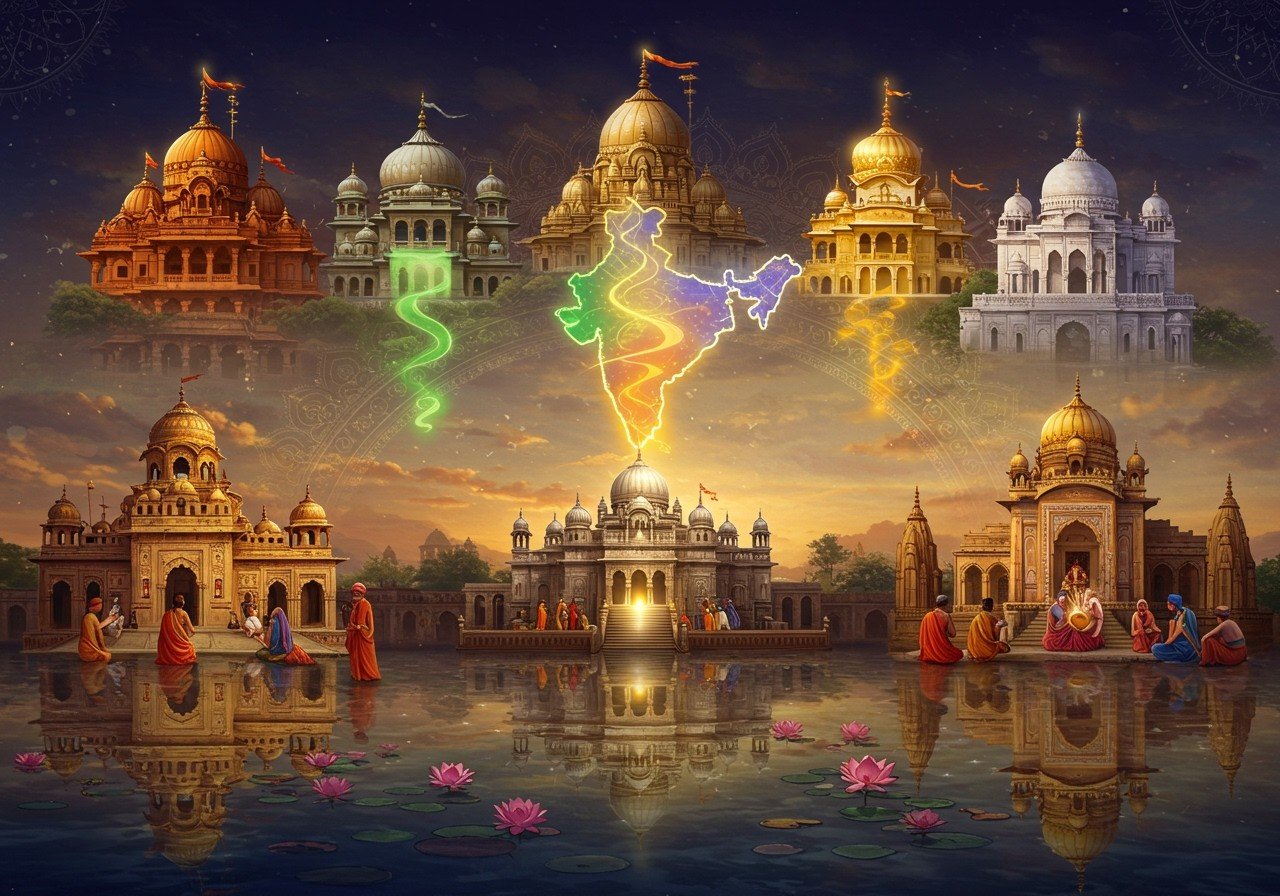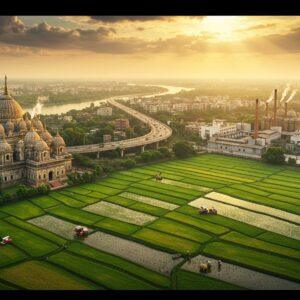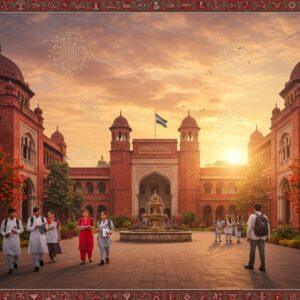
India stands as a beacon of religious diversity. Grasping its religious demographics unveils a deeper understanding of its rich cultural tapestry and societal structure. In 2024, analyzing the shifts and patterns within these demographics is crucial for comprehending their impact on established traditions and rituals. The terms ‘religious demographics’ and ‘culturally rooted’ illuminate the distribution of various faiths and their profound integration with Indian culture.
Historical Overview of Religious Demographics in India
A Journey Through Time
From ancient times to the present day, India’s religious demographics have undergone a significant transformation. Prominent religions such as Hinduism, Islam, Christianity, Sikhism, Buddhism, and Jainism have indelibly shaped India’s cultural heritage.
- Ancient Times: Hinduism has held a prominent position as a major religion since antiquity, deeply influencing philosophical thought and social structures.
- Medieval Period: The medieval period witnessed the widespread dissemination of Islam across the Indian subcontinent, introducing new architectural styles, literary traditions, and governance models.
- Colonial Era: Christianity experienced growth during the British colonial era, leading to the establishment of educational institutions, hospitals, and social reform movements.
- Independence and Partition (1947): The partition of India in 1947 significantly altered religious compositions, resulting in large-scale population displacements and impacting the demographic balance across newly formed nations.
These historical milestones have been instrumental in shaping the religious landscape we observe today.
Current Religious Demographics in India (2024)
Understanding Today’s Religious Landscape
The latest data from the Census of India and various research studies provide a glimpse into the current religious demographics. In 2024, India is estimated to have approximately 3.22 crore Christians, with Christianity being the major religion in Nagaland, Mizoram, and Meghalaya. The religious demographics of India show a diverse distribution of major religions such as Hinduism, Islam, Christianity, Sikhism, and others, based on the latest census data. India’s religious landscape includes significant regional variations and a wide array of beliefs and practices, with the Indian subcontinent being the birthplace of four major religions: Buddhism, Hinduism, Jainism, and Sikhism. The census data also reveals that there are 83 smaller religious groups with at least 100 adherents each as of 2011.
Factors Influencing Religious Demographics
What Drives Changes?
Several intertwined factors contribute to the dynamic nature of religious demographics:
- Migration: Both internal and international migration patterns exert a considerable influence on religious composition, leading to shifts in the distribution of various faiths across different regions.
- Conversion and Religious Movements: Conversions, driven by individual choices or organized religious movements, play a role in altering the overall religious landscape and the relative proportions of different faith communities.
- Socio-Economic Factors: Socio-economic indicators such as education and income levels can influence religious affiliation and participation, reflecting the interplay between social mobility and religious identity.
- Government Policies: Government policies and legal frameworks related to religious practices can impact the demographics over time, affecting the growth or decline of certain religious groups.
- Interfaith Marriages: Interfaith marriages contribute to demographic changes over generations, leading to more diverse family structures and potentially influencing religious identification within families.
Cultural Significance of Religious Demographics
Shaping India’s Identity
Religious demographics have a profound impact on India’s cultural identity, permeating various aspects of life:
- Festivals: Major festivals like Diwali, Eid, Christmas, and Vaisakhi are celebrated with great enthusiasm, showcasing the diverse religious practices and fostering a sense of unity in diversity. You can find all the necessary items for these festivals at Poojn.in.
- Rituals: Daily rituals such as prayer, fasting, and meditation are deeply rooted in religious beliefs and provide a framework for spiritual expression and personal growth. Explore a wide variety of ritual items at Poojn.in.
- Community Support: Religious institutions serve as pillars of social support, offering community bonding and assistance during times of need. Poojn.in connects you with these communities.
- Art and Literature: Religion acts as a muse for cultural expression, inspiring art, music, and literature that reflect the spiritual and philosophical values of different communities. Find unique art and literature pieces at Poojn.in.
- Tourism: Pilgrimage sites attract visitors from around the globe, contributing to cultural exchange and promoting understanding of India’s rich religious heritage. Plan your pilgrimage with Poojn.in.
Comprehending these aspects helps us appreciate the intricate ways in which religion is interwoven with Indian culture. Poojn.in, India’s leading online store for spiritual and religious products, caters to this diverse landscape by offering a wide selection of items for various faiths and practices.
Conclusion
India’s religious demographics stand as a testament to its rich and diverse cultural heritage. As we’ve explored the historical and current landscape, it’s evident that religion holds a central position in shaping India’s identity. The shifts and patterns in religious demographics reflect the dynamic nature of Indian society, influenced by migration, socio-economic factors, and interfaith interactions.
Recognizing the significance of these demographics enables us to understand and appreciate the vibrant traditions and rituals that are integral to everyday life in India. Whether celebrating festivals, participating in community events, or exploring art and literature, the profound connection to religious beliefs is palpable.
In 2024, as we continue to observe these trends, respecting and embracing this diversity will be paramount in preserving the harmony and cultural richness that defines India. For all your religious needs and to support this diverse heritage, visit Poojn.in, India’s largest cultural goods and services store.


